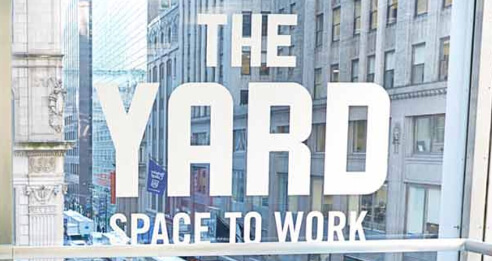
Largest Coworking Companies


A new coworking space requires planning and capital. Some operators might think that once they sign the lease, it won’t be too challenging to sell memberships and make instant profits due to the high demand for coworking spaces. However, some coworking spaces do fail, with the lack of community and funding being one of the two biggest reasons. Like any other business, it may be prudent to secure some outside funding as a safety net. If you are looking for someone interested in a coworking space investment, here are a few tips on how to find investors.
Before you can find investors, you first have to define your business plan fully.
Here is where you can define your community and target audience. What type of coworking space are you creating? Consider whether you are going to serve a niche community and offer special services like 3-D printing, childcare, or have a wellness-oriented space. Be specific here and decide how your space will help your community members.
The pitch deck is how you attract investors, customers, partners, or co-founders. The pitch deck should introduce you, your team, and explain why you’re business matters. It should also show what market you are trying to capture and what makes your business model different from others. Keep your presentation short and to the point to keep the attention of your audience.
Next, you should determine what your income sources will be. How many desks or private offices will you offer and what you will charge for that? Determine how much money you can bring in monthly. Next, you should also determine your fixed and variable costs. Things like security software, WiFi, snacks, coffee, utilities, and a cleaning service should all be tallied. Try to predict one-time spends including decorating/rennovation costs, furniture, and more.
Most likely, you will need to have some extra assistance in starting your coworking space. Now that you have a coworking space financial plan, you can start to explore different methods of getting financial backing. Some options might include applying for grants or loans. But, there are many other coworking space investment options available to you.
Crowdfunding has become popular in recent years thanks to sites like Kickstarter. It allows you to capitalize on the strength of your network by providing a platform for people to invest small amounts of money in exchange for a reward. Some coworking spaces might choose to offer memberships in exchange for early funding.
The Coven, a coworking space that is marketed towards women and non-binary individuals, ran a crowdfunding campaign in 2018. They raised more than $315k from the platform iFundWomen.
Running a successful crowdfunding campaign can be difficult. The Coven made sure to tell their story in a compelling way on the platform, and then brought people into their community for events. These networking events helped the founders meet influential women in their community, which in turn helped to strengthen their online marketing presence.
Venture Capital (VC) is an individual investor or a group of investors that provides capital, expert advice, or access to networks to help a business grow.
Right now, the dominant coworking space WeWork has taken a big chunk of the venture funding in the coworking market and has raised more than $8.6 billion. More and more venture capital investment opportunities are popping up in the market due to the rapid growth of the coworking industry.
WeWork isn’t the only coworking company that has taken advantage of venture capital investments. The Wing, a women-only coworking space, raised $32 million last year, and designer-focused Fuigo raised $4 million. These niche coworking spaces have created a unique member experience, which is helping to draw in investors.
If you are interested in finding a venture capital investment, you should first assess what this will actually mean for your business. Often, venture capitalists will invest funds in exchange for a percentage of the business. Consider if you are prepared to give up ownership of a portion of your business.
You should also look into specific venture capital firms and see what type of investments they have made in the past. For example, investors who have funded technology- or software-based companies probably won’t be as interested in your pitch as a VC who has invested in coworking spaces before.
An angel investor is often an individual, usually a successful business person, family, or friend, who will be investing their own money. Because this relationship is a bit more personal, it requires extra planning before you jump into the partnership. Make sure to know what kind of role you want the investor to have to create the best dynamic possible.
Know what you are looking for in your potential investor. Frequently, an angel investor will have previous entrepreneurial experience and can help advise you through the process. According to Ralph Kroman of WEirdFoulds LLP, the average angel investor wants to keep the investment for five to seven years and tends to invest up to $150,000.
Look for your investor close to home, because many angel investors like to play an active role in the business. Networking at business and trade organization meetings, trade fairs and events, or community organizations to get out there and meet people. You can also find connections at the Business Development Center or Community Futures Offices in your town or city.
Getting funding for your coworking space takes time and energy. Plan what sort of coworking space you want and try to find an investor who is interested in your business plan. Luckily, there is plenty of capital to go around for all new coworking spaces, as long as you know how to market yourself.
Save your community manager 41 hours each week—learn how The Yard did it with cloud-based access control.
Read the Case StudyThe Guide to Make Your Space More Profitable
Including interviews with experts and consultants.
Free access to our best guides, industry insights and more.
